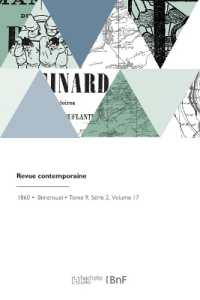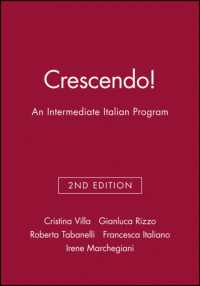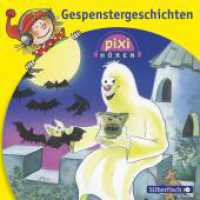Full Description
Poems on the craft, the risks and the subversive power of poetry, selected by the translator in conjunction with the author from the the Greek Collected Edition of Andonis Fostieris' poems published in 2021 (Apanta ta Poiimata 1970-2020). A bilingual edition with the Greek text from that edition and facing English translations by Irene Loulakaki-Moore. In her Introduction the translator writes:- If Fostieris draws the reader's attention to the alphabet, its sounds and the processes of syllabification, reading and writing, in other words to the "materiality of the text" and the "mechanisms of writing", it is because, like many poets of his generation, he is suspicious of the ways in which vocabularies create descriptions of the world and ourselves, instead of adequately or inadequately expressing them. The socio-political, economic and intellectual developments in Greece and elsewhere in the 1970s rendered obsolete previous generations' search for the "lost centre" and the grand narratives that validate it. Unlike the Modernist poet-authority, Fostieris, does not stand in the centre of his creation, like a unique owner of truth and sole creator of meaning... Fostieris' poetics surpasses Modernism and marks a turn towards the Post-modern, constituting a new approach to the role and function of contemporary poetry, while it also proposes a coherent conceptualization of the role of language and its relation to the truth... One could say that Fostieris and the poets of his Generation attempted what Surrealism (another avant-garde movement which met with a great deal of resistance in Greece) had attempted: the secularization of inspiration... The transformation of inspiration after the Surrealists made available for everyone what had been the privilege of the poet-initiate, in line with Lautréamont's injunction: "Poetry should be made by everyone. Not just by one." With his "prolonged hesitation between sound and meaning" (Paul Valéry) Fostieris wants to bring the written word closer to the mental experience, the feeling or the thing in itself. He does not deny the referential function of language, he only exhibits his suspiciousness towards the authority that says, "my language is true". By doing so he cleverly abstains from imposing on the readers his version of meaning, inviting them instead to join in the game of signification.
Contents
Introduction ix
From THE GREAT JOURNEY (1971)
Poetry is a noble shroud 3
From DARK EROS (1977)
The black 5
Fire poem 7
Who are you 9
And so they go by 11
Metamorphosis 13
The poem 15
Decadence 17
To the critics 19
POETRY WITHIN POETRY (1977): sixteen poems 21
From THE D AND A OF DEATH (1987)
The prodigal 53
Impervious to immortality 55
That the poet must if he would be a poet 57
The sound of words 59
The sound of the world 61
Genesis 63
From THOUGHT BELONGS TO MOURNING (1996)
Thought belongs to mourning 65
River poem 67
Before an audience 69
Metapoetry 73
From PRECIOUS OBLIVION (2003)
Poetry is not made with ideas 77
Purgation 79
You always emerge alive from a poem 81
The spoken words remain 85
From LANDSCAPES OF NOTHINGNESS (2013)
Writing 89
I write 91
I'd like to write a poem 93
The tare-weight 95
The cell 97
Poetry 99
The poem 101
The poets 103
Memorial of a birth 105
Notes 107
Bibliography 111








